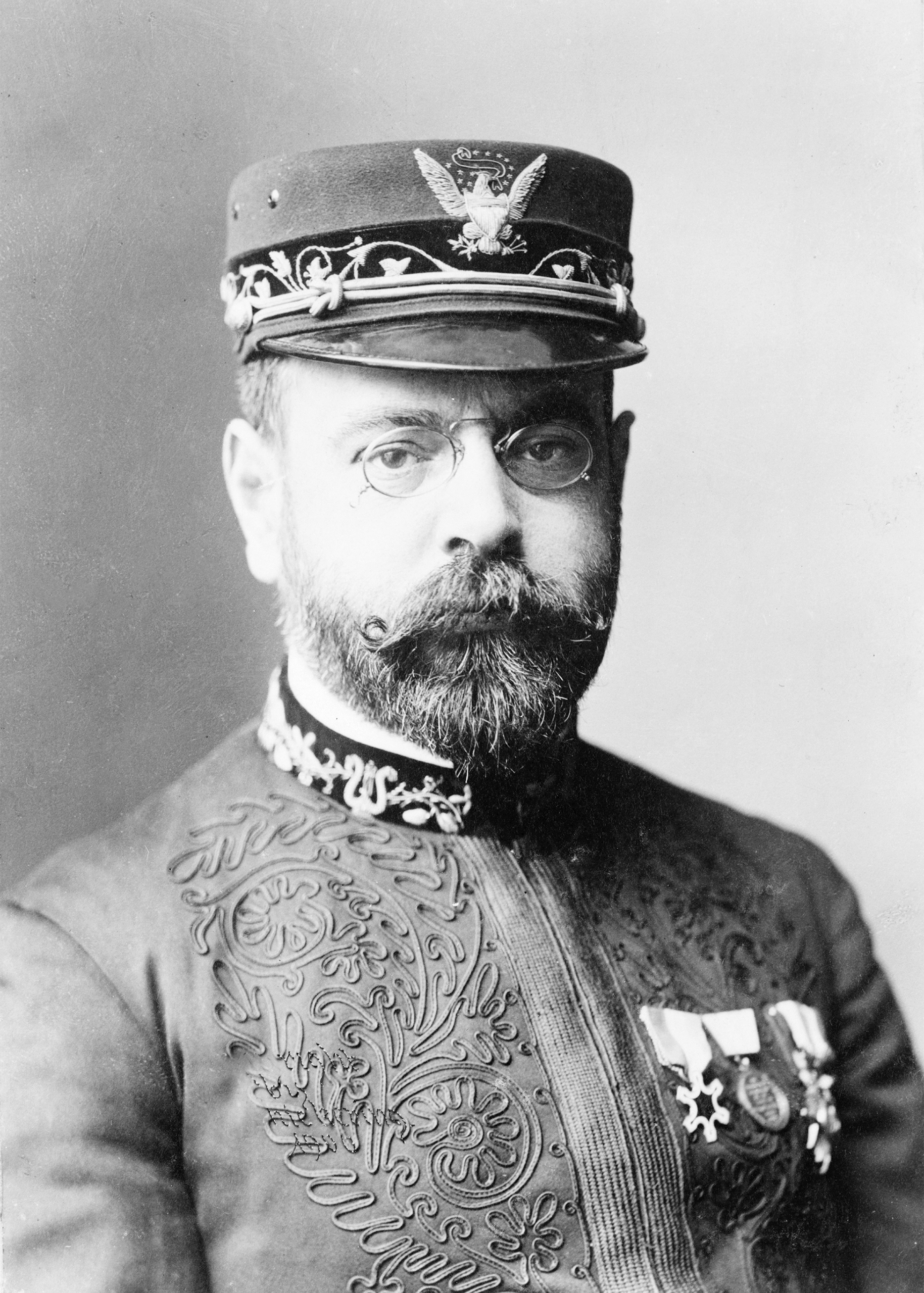Composer | John Philip Sousa

Ironically, the “American March King” was of mixed Portuguese and Bavarian descent. He was born in 1854 in Washington, DC. He learned violin, studied music theory and composition, and enlisted in 1868 at age 12 as an apprentice in the U.S. Marine Band (with which his father was a trombonist), leaving in 1875 to study conducting. At the 1876 centennial exposition in Philadelphia, he joined Offenbach’s orchestra. He returned to lead the U.S. Marine Band from 1880-1892, making it the leading U.S. military band, with over 60 phonograph cylinder recordings and a national reputation.
From 1892-1931, he led and recorded with his own Sousa Band, touring over 15,000 concerts internationally. By this time, Sousa was an established composer of marches (Liberty Bell, Thunderer, Washington Post, Semper Fidelis, and The Stars and Stripes Forever, among the best known). He had also developed the sousaphone, a portable tuba, to provide a marching bass. In World War I, Sousa enlisted again, but in the 1920s, promoted to lieutenant commander of the naval reserve, he saw no more active service. Sousa also wrote in other forms, including 11 operettas, most notably El Capitan. “The March King” died of heart failure in Pennsylvania, aged 77, on 6 March 1932, after conducting a rehearsal of The Stars and Stripes Forever.